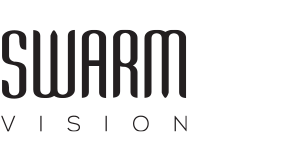The Swarm Innovation Profiler clearly differentiates innovators from the general population. And our questions not only correlated better with innovators, but with real world business results.
Q: Why did you develop the Swarm Innovation Profiler?
A: We wanted to give the innovation field a data-driven tool to improve business results.
We knew that the Swarm Crowd Profiler is amazing for the very front-end of innovation, the phase when you are generating, refining and evaluating ideas. The Swarm Vision Crowd Profiler is designed to dramatically improve that stage of the innovation process, and it delivers.
But we know well that:
- It takes more than ideas to innovate.
- It requires getting real products to market, and driving widespread market adoption.
- That takes a whole host of additional skills beyond ideation, skills that rarely occur in one person.
We also know that innovation leaders generate higher financial returns, and that they innovate across the entire product lifecycle: from R&D to product development, from production to marketing. So we set ourselves the task of identifying the full range of innovation and entrepreneurial skills needed, not just to generate killer ideas, but to create real products and businesses that drive market results.
Q: How did you go about the Profiler research?
A: We started by getting inside the hearts and minds of serial, successful entrepreneurs and intrapreneurs.
After absorbing gobs of available research, we started by interviewing serial successful entrepreneurs and intrapreneurs in Silicon Valley, and their advisors and investors who know them intimately. We went with Silicon Valley because it’s where we are located, it’s unquestionably the hotbed of innovation in the world, and because it attracts innovators from all over the world. These are people who have achieved multiple “exits,” created billions in shareholder value, whose companies have gone global and continue to prosper. Interviewing them was an honor, and truly fascinating! We then conducted three rounds of international research to develop and validate our tool.
Q: Are there useful academic studies on innovation?
A: Yes, but they are only a starting point!
We soon realized that a lot of the academic studies on innovators get it wrong. They see innovators from a non-innovator’s perspective. One example: academic research on entrepreneurs is all about “risk tolerance” and “ambiguity tolerance.” But in our interviews, to a person, not a single innovator even mentioned the word “risk.” They just don’t look at what they are doing through the lens of risk. Taking on big, real-world challenges lets them live life more intensely. It’s a way to pursue their interests and passions. Offer them an ordinary “secure” job, and they react, “But why?” When situations are undefined, that’s when innovators feel most engaged and useful.
Nonetheless, we wanted to give the academic research a fair chance. We ran three global studies, and included “proven” academic scales alongside our own questions in the first two. Again and again, our new questions, inspired by our interviews, out-performed the “proven scales.”
Q: Can other assessments predict innovation outcomes?
A: No, but that is our Holy Grail!
So we knew that the Profiler more clearly differentiated innovators from the general population. And our questions not only correlated better with innovators, but with real world business results. In fact, people who score in the top quartile on the Swarm Enterprise Profiler generate 3x the business results of those who score in the bottom quartile.
Current assessments tend to focus on creativity or on your innovation preferences (like what phase of the process you prefer). They are not designed to predict business outcomes. As we apply the Swarm Innovation Profiler to teams, we hope to be able to predict team outcomes as well as we can predict individual outcomes. We hope organizations use our tools to form stronger teams, versus relying on guesswork.

